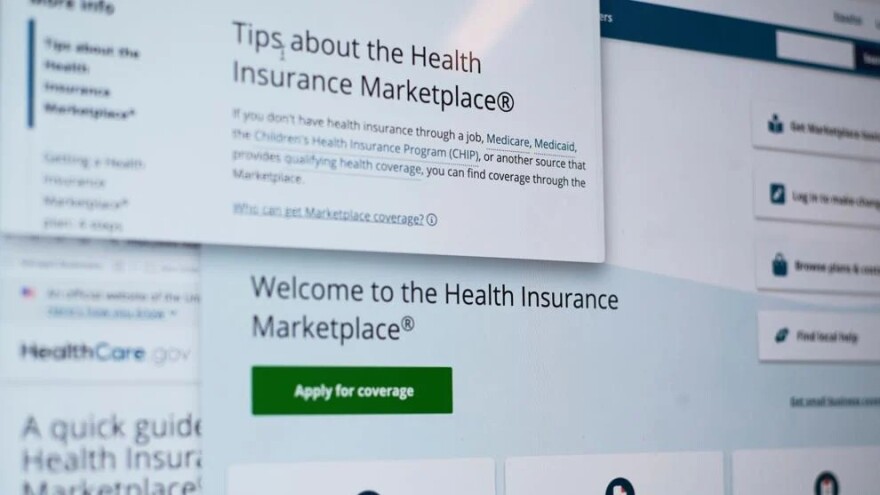❓TELL US: Are you facing higher costs for health insurance? We want to hear your story
Higher prices, less help and a government shutdown all hang over health insurance markets as shoppers start looking for coverage beginning Saturday.
The annual enrollment window for millions of people to pick an individual plan opens amid a heavy dose of politics weighing on this year’s search.
The federal government shut down this month as Democrats in Congress demanded negotiations to extend enhanced tax credits that have helped people buy coverage the past few years. Republicans say they won’t negotiate until Democrats vote to reopen the government.
Stuck in the middle are insurance customers, many of whom will be facing the biggest premium hikes they’ve seen in years and may be forced to consider changing plans.
“It seems overwhelming, but it really is important to shop and consider your choices,” said Sara Collins, an insurance expert with the Commonwealth Fund.
Here’s how shoppers can respond.
The first deadline is in six weeks
Shoppers will have until Jan. 15 in most states (including Florida) to find a plan for 2026, but must make their choice by Dec. 15 if they want coverage starting New Year's Day.
This is the main chance people with individual coverage have every year to find a plan for the next year. More than 24 million people enrolled in individual plans for 2025, according to KFF, which studies health care issues.
FROM NPR: What to know ahead of open enrollment from "Here and Now"
People can buy a new plan with help from income-based tax credits through insurance marketplaces set up in every state. Former President Joe Biden’s administration beefed up that help with enhanced tax credits during the COVID-19 pandemic. Those are set to expire this year unless Congress works out an extension.
Shoppers also can find options outside these marketplaces — sometimes for a lower price — but they won’t get tax credit help.
You may see price hikes
KFF has said that premiums will jump around 20% next year on average. But the expiring tax credits could cause coverage costs to more than double for some.
Insurance has become more expensive because care costs are rising, a big worry for Americans. Insurers also set prices assuming the extra tax credits would expire — and that healthy people who paid little for coverage in 2025 might not return because of that.
ALSO READ: ACA open enrollment begins Nov. 1. Here are changes you should know
The higher prices aim to make up for that lost revenue, said Karan Rustagi, a Wakely Consulting Group health actuary who works with insurers.
The higher prices may not change even if Congress restores the enhanced tax credits before the enrollment window ends. It can take insurers weeks to complete rates with regulators and then update their systems and customer handbooks, Rustagi noted.
Help may be harder to find
The Centers for Medicare and Medicaid Services in February cut funding by 90% for a federal program that provides navigators who help people find coverage.
That will lead to less free help in more than two dozen states that rely on the federal government to run their health insurance marketplaces. Kaye Pestaina, a vice president with KFF, said help like this is especially important for first-time shoppers who need to predict their income to get tax credit help.
ALSO READ: A new car vs. health insurance? Average family job-based coverage hits $27,000
That task can be especially challenging for seasonal workers or others who see their income fluctuate.
“That one-on-one assistance is going to be really important,” Pestaina said. “It’s not intuitive.”
If navigators are not available, health insurance brokers or agents can help. They receive commissions paid by insurers, often a flat fee.
What you can do
Shoppers can get a sense of their options by visiting the federal ACA marketplace at healthcare.gov.
Collins said people should start there, not Google, because search results could connect you with someone selling more limited, short-term insurance.
Fill out the application for tax credit help first, said Joshua Brooker, a Lancaster, Pennsylvania-based independent insurance agent. That will show whether any assistance is available now, and it will automatically update if enhanced tax credits are extended.
“Doing that first application is not lost time,” he said. Then pick a plan. Look beyond the premium — consider deductibles, which doctors or hospitals are in the network, and how prescriptions are covered.
ALSO READ: Why the ACA needs young people — and the looming 'death spiral' for health insurance
Don’t wait to see whether the extra tax credit debate is resolved; that may not happen during your enrollment window. If it does, you can revisit your choice.
“You do have a mulligan,” Brooker said.
Agents say many people procrastinate on insurance shopping, which can make it harder to find help as deadlines approach. “I have people every year either wait until the very last day to enroll or they miss the deadline entirely,” said Shayla Teague, an insurance agent based in Anchorage, Alaska. “Make sure you have something in place, ready to go.”



